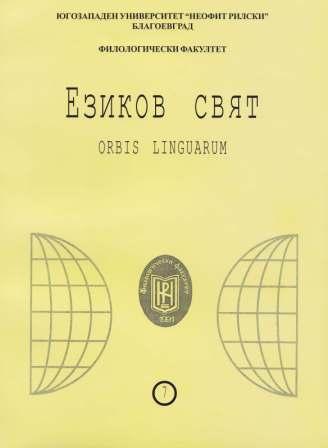ТИПОЛОГИЯ НА ПОДЧИНЕНИТЕ ИЗРЕЧЕНИЯ КЪМ ПРИЛАГАТЕЛНО ИМЕ В БЪЛГАРСКИ
TYPOLOGY OF THE DEPENDENT CLAUSES RELATED TO ADJECTIVES IN BULGARIAN
Author(s): Svetla KoevaSubject(s): Language studies, Language and Literature Studies, Theoretical Linguistics, Philology
Published by: ЮГОЗАПАДЕН УНИВЕРСИТЕТ »НЕОФИТ РИЛСКИ«
Keywords: adjectives; complements; adjuncts; complement clauses; adjunct clauses; attributive clauses; free relatives
Summary/Abstract: The motivation of this study is based on the controversial interpretation of the dependent clauses related to an adjective and on the lack (in some cases) of any description for some types of these clauses. The study aims at revelling: a) the semantic nature of the dependencies between the head adjective and the dependent clauses (complements, adjuncts, specifiers); and (b) the grammatical and functional characteristics of dependent clauses related to a head adjective. We show that the predicative adjectives (in a predicative position and in a small clause position) take complement and adjunct clauses, while the attributive adjectives (in a position of modifiers to a noun) take attributive causes. The attributive adjectives regularly combines with a head noun, which in some cases might be omitted if it is recoverable by the context. These structures are called syntactic nominalisation and the relative clauses related with the empty head are free relatives. We conclude with a typology of clauses related to a head adjective in Bulgarian, which takes into account the semantic relations between the head adjective and its dependent clauses, but also pays an attention to the grammatical and functional characteristics of the clauses. The presented typological classes are also related with the traditional classification.
Journal: Езиков свят - Orbis Linguarum
- Issue Year: 2018
- Issue No: 2
- Page Range: 122-132
- Page Count: 11
- Language: Bulgarian

